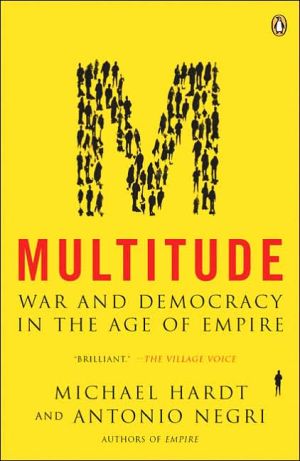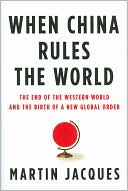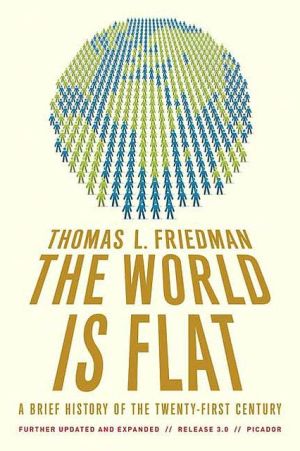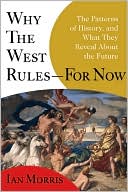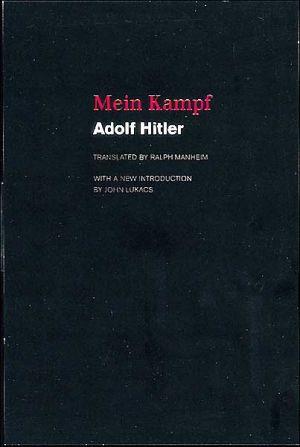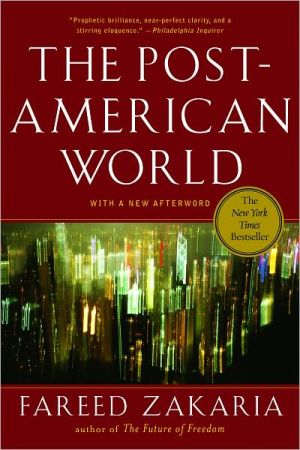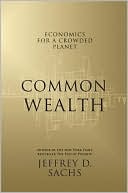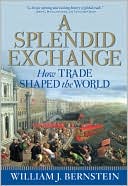Multitude: War and Democracy in the Age of Empire
In their international bestseller Empire, Michael Hardt and Antonio Negri presented a grand unified vision of a world in which the old forms of imperialism are no longer effective. But what of Empire in an age of “American empire”? Has fear become our permanent condition and democracy an impossible dream? Such pessimism is profoundly mistaken, the authors argue. Empire, by interconnecting more areas of life, is actually creating the possibility for a new kind of democracy, allowing different...
Search in google:
In their international bestseller Empire, Michael Hardt and Antonio Negri presented a grand unified vision of a world in which the old forms of imperialism are no longer effective. But what of Empire in an age of “American empire”? Has fear become our permanent condition and democracy an impossible dream? Such pessimism is profoundly mistaken, the authors argue. Empire, by interconnecting more areas of life, is actually creating the possibility for a new kind of democracy, allowing different groups to form a multitude, with the power to forge a democratic alternative to the present world order. Exhilarating in its optimism and depth of insight, Multitude consolidates Hardt and Negri's stature as two of the most important political philosophers at work in the world today. Publishers Weekly Empire (2000)-the surprise hit that made its term for U.S global hegemony stick and presciently set the agenda for post-9/11 political theory on the left-was written by this same somewhat unlikely duo: Hardt, an American political scientist at Duke University, and Negri, a former Italian parliament member and political exile, trained political scientist and sometime inmate of Rome's Rebibbia prison. This book follows up on Empire's promise of imagining a full-blown global democracy. Though the authors admit that they can't provide the final means for bringing that entity about (or the forms for maintaining it), the book is rich in ideas and agitational ends. The "multitude" is Hardt and Negri's term for the earth's six billion increasingly networked citizens, an enormous potential force for "the destruction of sovereignty in favor of democracy." The middle section on the nature of that multitude is bookended by two others. The first describes the situation in which the multitude finds itself: "permanent war." The last grounds demands for and historical precursors of global democracy. Written for activists to provide a solid goal (with digressions into history and theory) toward which protest actions might move, this timely book brings together myriad loose strands of far left thinking with clarity, measured reasoning and humor, major accomplishments in and of themselves. (On sale Aug. 9) Copyright 2004 Reed Business Information.
The possibility of democracy on a global scale is emerging today for the very first time. This book is about that possibility. It is about what we call the project of the multitude. The project of the multitude not only expresses the desire for a world of equality and freedom, not only demands an open and inclusive democratic global society, but also provides the means for achieving it. That is how our book will end, but it cannot begin there.\ The possibility of democracy is obscured and threatened today by the seemingly permanent state of conflict across the world. Our book must begin with this state of war. Democracy, it is true, remained an incomplete project throughout the modern era in all its national and local forms, and certainly the processes of globalization in recent decades have added new challenges, but the primary obstacle to democracy today is the global state of war. In our era of armed globalization, in fact, the modern dream of democracy may seem to have been definitively lost. War has always been incompatible with democracy. Traditionally, democracy has been suspended during wartime and power confided temporarily in a strong central authority to confront the crisis. When today the state of war is not only global in scale but also long-lasting, with no end in sight, then the suspension of democracy also becomes indefinite or even permanent. Democracy thus appears to be entirely irretrievable, buried deep beneath the weapons and security regimes of our global state of war.\ Never has democracy been more necessary than today, in this situation of global conflict. No other path will provide a way out of the fear, insecurity, and domination that permeate our world at war; no other path will lead us to a peaceful life in common. Democracy, it would seem, has never been more impossible or more necessary.\ This book is the sequel to our book Empire, which focused on the new, global form of sovereignty. That book attempted to interpret the tendency of global political order in the course of its formation; that is, to recognize how, from a variety of contemporary processes, a new form of global order is emerging that we call empire. Our point of departure was the recognition that contemporary global order can no longer be understood adequately in terms of imperialism as it was practiced by the modern powers, based primarily on the sovereignty of the nation-state extended over foreign territory. Instead, a “network power,” a new form of sovereignty, is emerging today that includes as its primary elements, or nodes, the dominant nation-states along with supranational institutions, major capitalist corporations, and other powers. This network power we claim is “imperial,” not “imperialist.” Not all the powers in empire’s network, of course, are equal. On the contrary, some nation-states have enormous power and some almost none at all, and the same is true for the various other corporations and institutions that make up the network—but despite inequalities they must cooperate together to create and maintain the current global order along with all of its internal divisions and hierarchies.\ Our notion of empire thus cuts diagonally across the debates that pose unilateralism and multilateralism or pro-Americanism and anti-Americanism as the only global political alternatives. On the one hand, we argued that no nation-state, not even the most powerful one, not even the United States, can “go it alone” and maintain global order without collaborating with the other major powers in the network of empire. On the other hand, we claimed that the contemporary global order is not characterized and cannot be sustained by an equal participation of all, or even the set of elite nation-states, as in the model of multilateral control under the authority of the United Nations. Rather, severe divisions and hierarchies, along regional, national, and local lines, define our current global order. Our claim is not simply that unilateralism and multilateralism as they have been presented are not desirable but that they are not possible given our present conditions and that attempts to pursue them will not succeed in maintaining the current global order. When we say that empire is a tendency we mean that it is the only form of power that will succeed in maintaining the current global order in a lasting way. One might thus respond to the U.S. unilateralist global projects with the ironic injunction adapted from the Marquis de Sade: “Américains, encore un effort si vous voulez être imperials!” (“Americans, try again if you want to be imperialists.”)\ We also claimed that empire rules over a global order that is not only fractured by internal divisions and hierarchies but also plagued by perpetual war. The state of war is inevitable in empire and war functions as an instrument of rule. Today’s pax imperia, like that in the times of ancient Rome, is a false pretense of peace that really presides over a state of constant war. All of that analysis of empire and global order, however, was part of the previous book and there is no need for us to repeat it here.\ This book will focus on the multitude, the living alternative that grows within empire. You might say, simplifying a great deal, that there are two faces to globalization. On one face, empire spreads globally its network of hierarchies and divisions that maintain order through new mechanisms of control and constant conflict. Globalization, however, is also the creation of new circuits of cooperation and collaboration that stretch across nations and continents and allow an unlimited number of encounters. This second face of globalization is not a matter of everyone in the world becoming the same, but rather it provides the possibility that, while remaining different, we discover the common that allows us to communicate and act together. The multitude too might thus be conceived as a network: an open and expansive network in which all differences can be expressed freely and equally, a network that provides the means of encounter so that we can work and live in common.
Preface : life in common1War11.1Simplicissimus31.2Counterinsurgencies361.3Resistance632Multitude972.1Dangerous classes1032.2De corpore1582.3Traces of the multitude1893Democracy2293.1The long march of democracy2313.2Global demands for democracy2683.3Democracy of the multitude328
\ Publishers WeeklyEmpire (2000)-the surprise hit that made its term for U.S global hegemony stick and presciently set the agenda for post-9/11 political theory on the left-was written by this same somewhat unlikely duo: Hardt, an American political scientist at Duke University, and Negri, a former Italian parliament member and political exile, trained political scientist and sometime inmate of Rome's Rebibbia prison. This book follows up on Empire's promise of imagining a full-blown global democracy. Though the authors admit that they can't provide the final means for bringing that entity about (or the forms for maintaining it), the book is rich in ideas and agitational ends. The "multitude" is Hardt and Negri's term for the earth's six billion increasingly networked citizens, an enormous potential force for "the destruction of sovereignty in favor of democracy." The middle section on the nature of that multitude is bookended by two others. The first describes the situation in which the multitude finds itself: "permanent war." The last grounds demands for and historical precursors of global democracy. Written for activists to provide a solid goal (with digressions into history and theory) toward which protest actions might move, this timely book brings together myriad loose strands of far left thinking with clarity, measured reasoning and humor, major accomplishments in and of themselves. (On sale Aug. 9) Copyright 2004 Reed Business Information.\ \ \ \ \ Kirkus ReviewsBlend warmed-over Chomsky with dashes of Althusser and a pinch of Marx. Stir in some half-cooked network theory. Serve over a slab of post-Fordism. Voila: you've got a lovely critique of imperialism, perfect for serving at a faculty lunch. Hardt (Duke Univ.) and Negri (Univ. of Padua) follow up their Empire (not reviewed) with a presupposition that global politics is dominated not by a mere one or two powers (though, of course, the US is prominent) but by a network of advanced nation-states and their clients: the Empire, with a capital E. "Empire spreads globally its network of hierarchies and divisions that maintain order through new mechanisms of control and constant conflict," they write. "Globalization, however, is also the creation of new circuits of cooperation and collaboration that stretch across nations and continents and allow an unlimited number of encounters." These other circuits, they suggest, are the voice of the Multitude, an alternate network that holds the last best hope for democracy. "The conditions are emerging today," Hardt and Negri hold, "that give the multitude the capacity of democratic decision-making and that thus make sovereignty unnecessary." You may not want to hold your breath waiting for the state to wither away as the world's masses get hip to the Internet. There are thickets of prose here to give you pause nonetheless: "What we really need are weapons that make no pretense to symmetry with the ruling military power but also break the tragic asymmetry of the many forms of contemporary violence that do not threaten the current order but merely replicate a strange new symmetry." "Feminist struggles, antiracist struggles, and struggles of indigenouspopulations too are biopolitical in the sense that they immediately involve legal, cultural, political, and economic issues, indeed all facets of life." "Numerous contemporary wars neither contribute to nor detract from the ruling global hierarchy, and thus Empire is indifferent to them." And so on. Just the thing for those who want their earthly salvation served up by postmodern social scientists. For the rest of us, thank the heavens, we've got Gore Vidal.\ \
